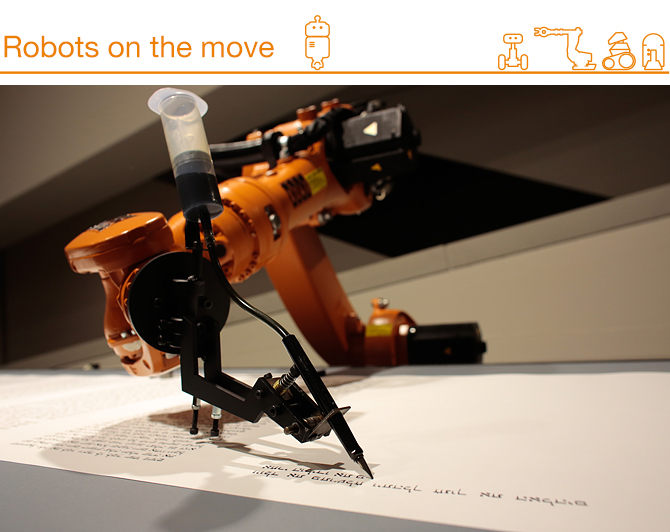
Writer's block? Robot authors face uncertain future
Are readers ready for novels written by robots? The technology exists, but the value of it is less clear.
Today a robot can more or less write fiction independently, but should creative professionals be worried?
Trials and experiments have been going on different levels, for several years. One of the first literary works generated by a computer is considered Truelove, a 320-page novel, which was published in 2008 based on Leo Tolstoy's classic, Anna Karenina, and written in a style that mimics the Japanese writer Haruki Murakami.
According to Nicklas Lundblad, an expert in artificial intelligence and adjunct professor at KTH Royal Institute of Technology, the principle of robotic authoring is simple: enter a sufficiently large number of existing books, and let the computer break down the basic common stories into a pattern. Then fill in the language.
All that's required from humans is for an editor to ensure a coherent narrative structure, he says.

"Implicit in this question is usually the idea that robots can replace today's writers. I think you should ask instead, 'How can they work together?'," Lindblad says.
Lindblad envisions the development of more tools in artificial intelligence that can support the author's work, both in technical writing skills and in the creative process. This can include advanced support for stimulating vocabulary richness, improve writing style, grammar checking and helping with intrigue, narratives and dramaturgy.
Fiction-generating computers are representative of one of the biggest challenges in the research field of artificial intelligence. Such advances in artificial intelligence development pose profound, existential questions: What becomes of our society and our self-image if we manage to create machines as intelligent as humans? Are we nothing more than machines ourselves?
"We have long felt in our hearts that there are things we can do that machines can't. But advances in technology and IT keep forcing us to back off of this conviction."
Nevertheless, Lindblad says that robot authors face an enormous hurdle — demand.
"I wonder if there really are people who want to buy a robot-authored book. The very first book would of course be interesting, but after that, continued interest would be doubtful."
The problem with it is that good literature is about communication, he says. "The literary voice requires a consciousness. Intelligence is a relatively minor thing, but consciousness is different.
"Or perhaps I'm wrong. Maybe I was born in the wrong century and too influenced by the values of my time to understand this fully."
Could we not develop computers with some form of consciousness?
"I do not know if it is possible, because we do not know what consciousness is. We cannot answer that question in a scientifically satisfactory manner. So far, our consciousness remains a great mystery."
Christer Gummeson